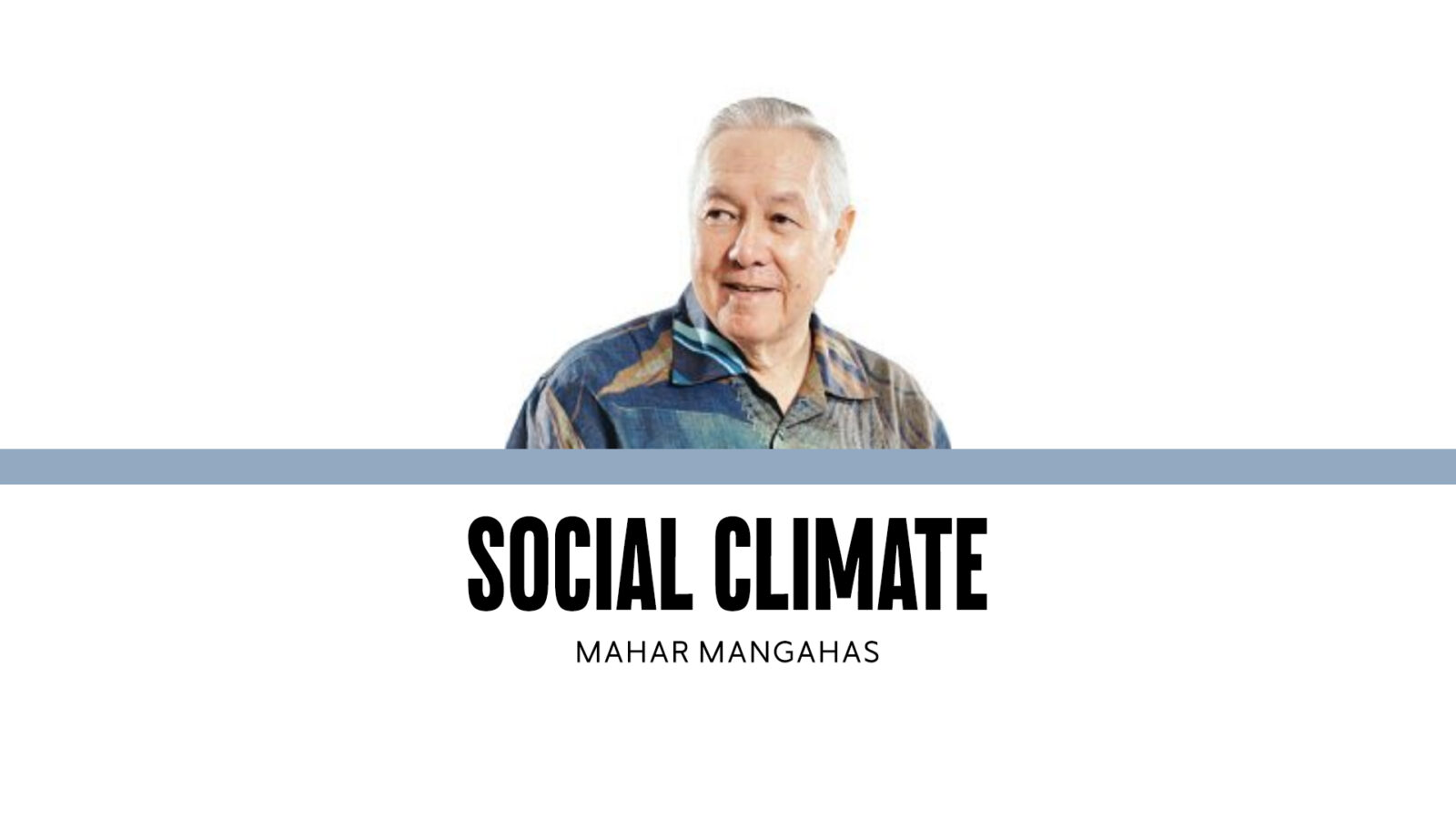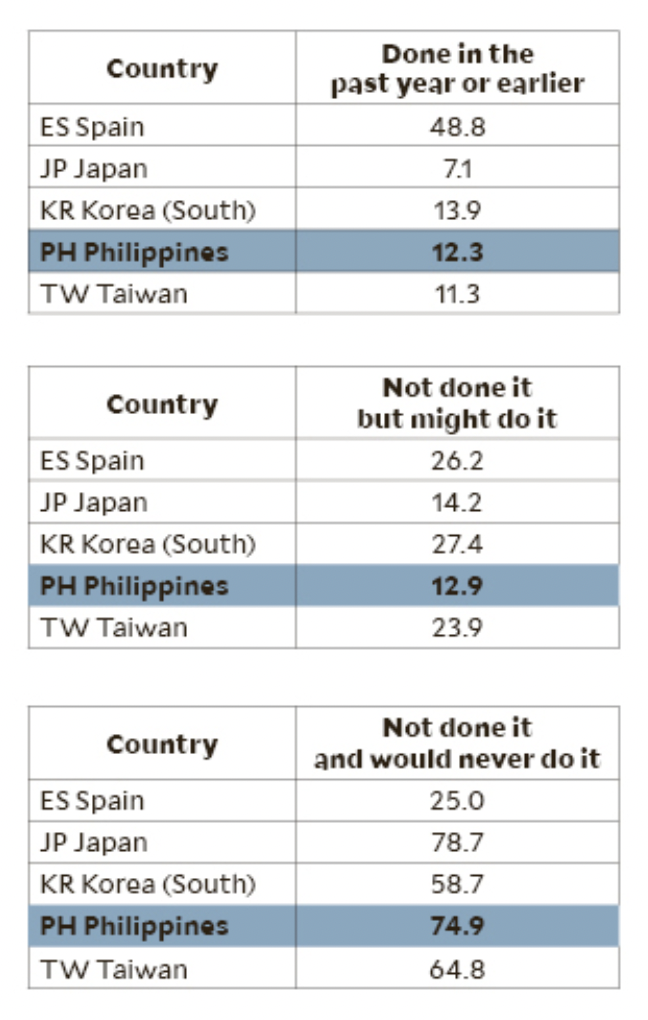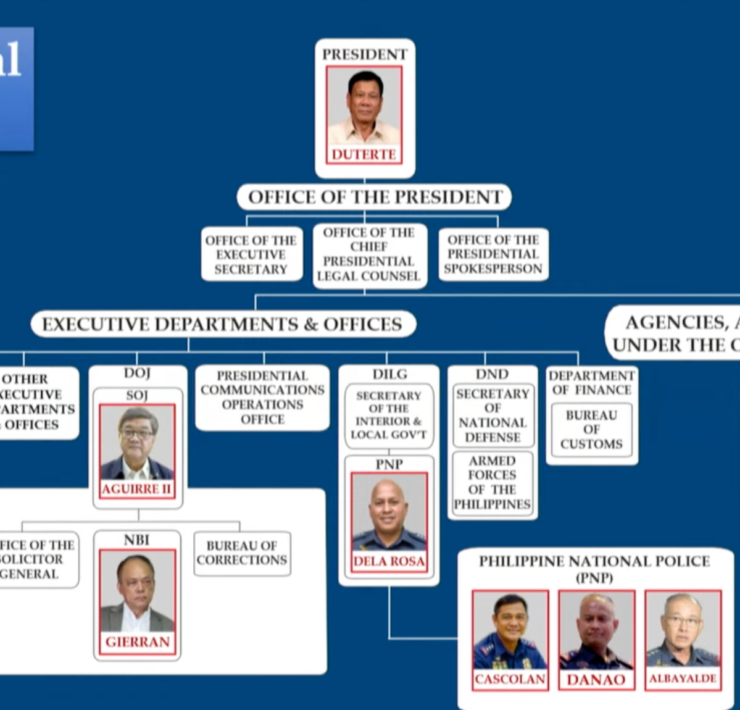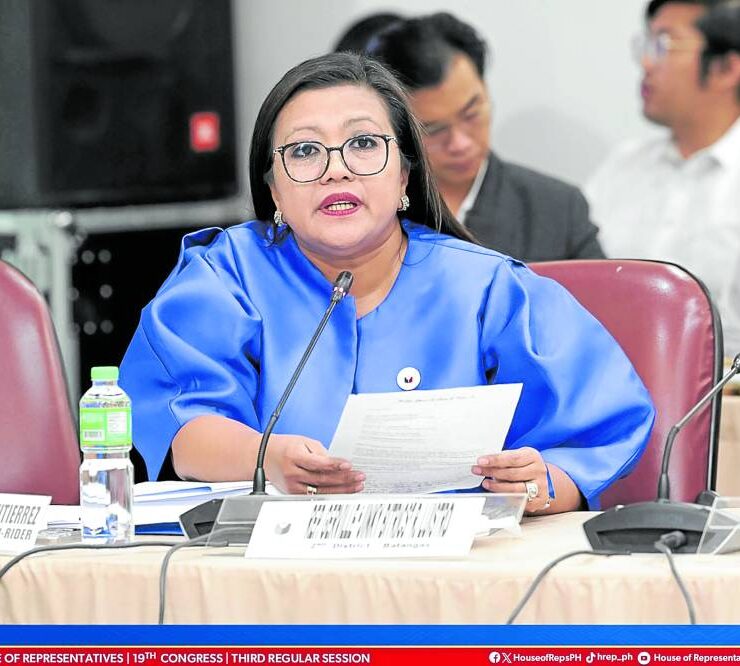How angry are the people?

There are large rallies planned for tomorrow, September 21, in protest against the massive corruption recently revealed in the public hearings about the government’s flood control projects. The rally-plans have worried the government enough to mobilize many thousands of policemen to safeguard the streets, and to put the armed forces on red alert.
I have no answer to my title, because I don’t know of any anger-meter for the Philippines. But certainly, emotions are measurable. There are well-accepted Philippine survey numbers for positive feelings like national pride and happiness, and for negative ones like national shame and dissatisfaction with life. Anger, outrage, and frustration are likewise capable of measurement. Maybe they are already being surveyed? Cases of secret opinion polls are in the literature.
Last week, I pointed out that, a decade ago, we Filipinos already had a very strong sense of corruption among our politicians and public officials (“Counting the corrupt,” 9/13/25), citing the 2016 International Social Survey Program (issp.org) module on Role of Government. This module will be replicated soon, and provide an update. I doubt that it will show a reduction of corruption.
How many Filipinos have already joined a protest rally, or might do so? For 2014, the ISSP’s survey topic was Citizenship, chosen by majority vote (one country, one vote) of its members. Social Weather Stations (sws.org.ph), the Philippine member of ISSP, was a proponent of the topic, and was then elected a member in the questionnaire drafting group.
Among the survey’s many questionnaire items was whether the respondent had (a) already taken part in a political/social demonstration in the past year, or (b) had done it sometime earlier, or (c) had not done it but might do it in the future, or (d) had not done it and would never do it.
The findings for the Philippines, Spain and some Asian countries are in the table below. Those answering (a) or (b) are combined in the first column; they are the rally veterans. In the second column are those with no prior experience, but who said they might do it; they are potential new rallyists. In the third column are abstainers or committed non-rallyists.
The table shows rally veterans as equally plentiful in South Korea, the Philippines and Taiwan, most plentiful in Spain, and least plentiful in Japan. Given our present adult population of over 70 million, even one-half percent of them would be a massive crowd. Adding potential rallyists would double Filipino participation, and triple the South Korean and Taiwanese. [The 2014 ISSP module was not done in Thailand and the United States, hence their exclusion here.]
Consider the trust ratings of major politicians. The latest trust ratings of high officials give hints of their present popularity (“SWS confirms the June 2025 survey items sponsored by the Stratbase Group on public trust in the Philippines’ top officials,” 7/15/25). Last June, the net trust rating of President Ferdinand Marcos Jr., was a weak +19 (gross trust 48 percent minus gross distrust 30 percent, correctly rounded).
It was outpointed by the +38 net trust (gross trust 61 minus gross distrust 23) of Vice-President Sara Duterte, but her score should be nuanced by the people’s simultaneous strong view that she should address the impeachment charges, and answer the allegations of corruption against her (gross agreement 66, gross disagreement 19; the net score is +38, correctly rounded); see “SWS confirms the June 2025 survey item sponsored by the Stratbase Group on whether Duterte should address the impeachment charges,” 7/15/25.
The net trust rating of then Senate President Francis Escudero was a decent +31 (gross trust 55 minus gross distrust 23, correctly rounded); but note that the poll happened before the Senate’s August 6 archiving of the Duterte impeachment case, which probably lessened his popularity.
Finally, the net trust rating of then Speaker Martin Romualdez was zero (gross trust 34 percent minus gross distrust 34 percent also). Note that all the above polls date from June, well before the sensational hearings on the enormous waste of flood control funds.
Past and potential future participation in a political rally.
(% of adults)

—————
Source: ISSP 2014 Module on Citizenship.
Dr Mahar Mangahas is a multi-awarded scholar for his pioneering work in public opinion research in the Philippines and in South East Asia. He founded the now familiar entity, “Social Weather Stations” (SWS) which has been doing public opinion research since 1985 and which has become increasingly influential, nay indispensable, in the conduct of Philippine political life and policy. SWS has been serving the country and policymakers as an independent and timely source of pertinent and credible data on Philippine economic, social and political landscape.





















